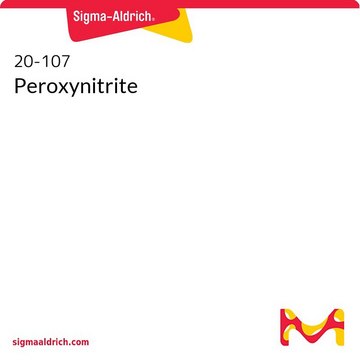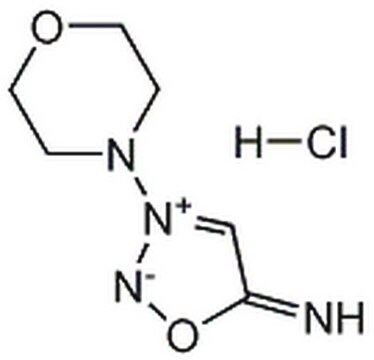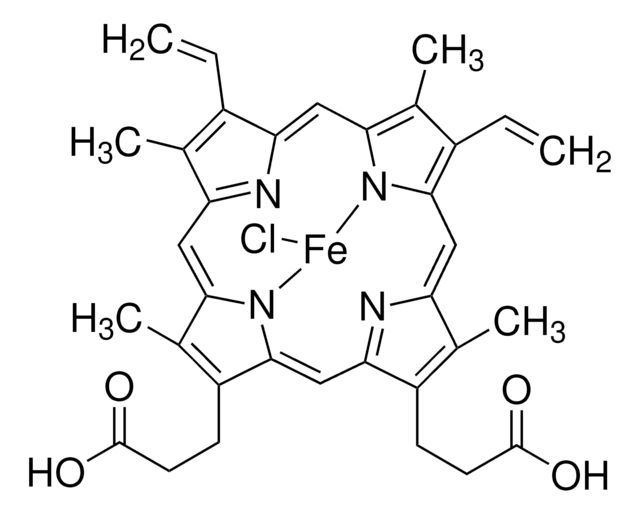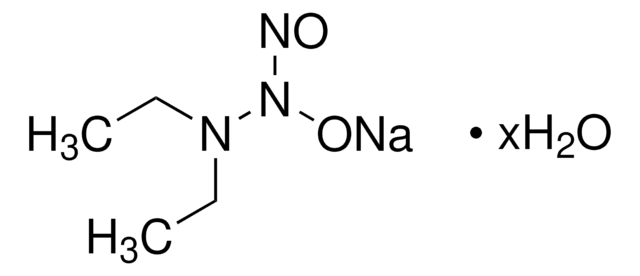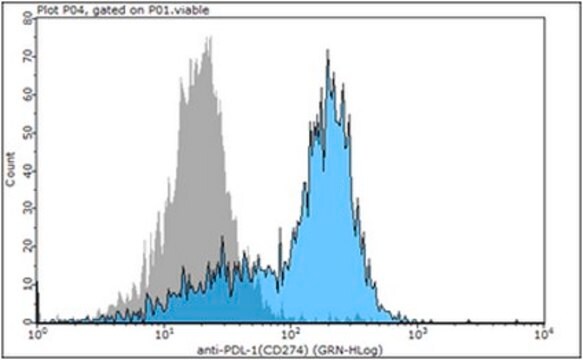20-247
Peroxynitrite, degraded
Iniciar sesiónpara Ver la Fijación de precios por contrato y de la organización
About This Item
UNSPSC Code:
41116012
eCl@ss:
32160405
NACRES:
NA.42
technique(s):
nitration: suitable
application:
nitration
citations:
3
Productos recomendados
form
liquid
Quality Level
manufacturer/tradename
Upstate®
technique(s)
nitration: suitable
shipped in
dry ice
Application
Research Category
Neuroscience
Neuroscience
Research Sub Category
Neurodegenerative Diseases
Neurodegenerative Diseases
Quality
Routinely evaluated by treatment of non-stimulated A431 cells with degraded peroxynitrite; subsequent lack of positive staining was detected with anti-nitrotyrosine antibody (06-284).
Physical form
Degraded peroxynitrite (50-100mM); solution containing approximately 255mM H2O2, 0.18M NaOH, 0.23M NaCl, 23mM NaNO3 and 20mM NaNO2.
Storage and Stability
1 year at -70°C
Legal Information
UPSTATE is a registered trademark of Merck KGaA, Darmstadt, Germany
Disclaimer
Unless otherwise stated in our catalog or other company documentation accompanying the product(s), our products are intended for research use only and are not to be used for any other purpose, which includes but is not limited to, unauthorized commercial uses, in vitro diagnostic uses, ex vivo or in vivo therapeutic uses or any type of consumption or application to humans or animals.
signalword
Warning
hcodes
Hazard Classifications
Eye Irrit. 2 - Met. Corr. 1 - Skin Irrit. 2
Storage Class
5.1B - Oxidizing hazardous materials
wgk_germany
WGK 2
flash_point_f
Not applicable
flash_point_c
Not applicable
Certificados de análisis (COA)
Busque Certificados de análisis (COA) introduciendo el número de lote del producto. Los números de lote se encuentran en la etiqueta del producto después de las palabras «Lot» o «Batch»
¿Ya tiene este producto?
Encuentre la documentación para los productos que ha comprado recientemente en la Biblioteca de documentos.
Pathological implications of nitric oxide, superoxide and peroxynitrite formation.
Beckman, J S and Crow, J P
Biochemical Society Transactions, 21, 330-334 (1993)
Oxidative chemistry of peroxynitrite.
Beckman, J S, et al.
Test, 233, 229-240 (1994)
James Murray et al.
The Journal of biological chemistry, 278(39), 37223-37230 (2003-07-15)
There is growing evidence that oxidative phosphorylation (OXPHOS) generates reactive oxygen and nitrogen species within mitochondria as unwanted byproducts that can damage OXPHOS enzymes with subsequent enhancement of free radical production. The accumulation of this oxidative damage to mitochondria in
Nuestro equipo de científicos tiene experiencia en todas las áreas de investigación: Ciencias de la vida, Ciencia de los materiales, Síntesis química, Cromatografía, Analítica y muchas otras.
Póngase en contacto con el Servicio técnico
